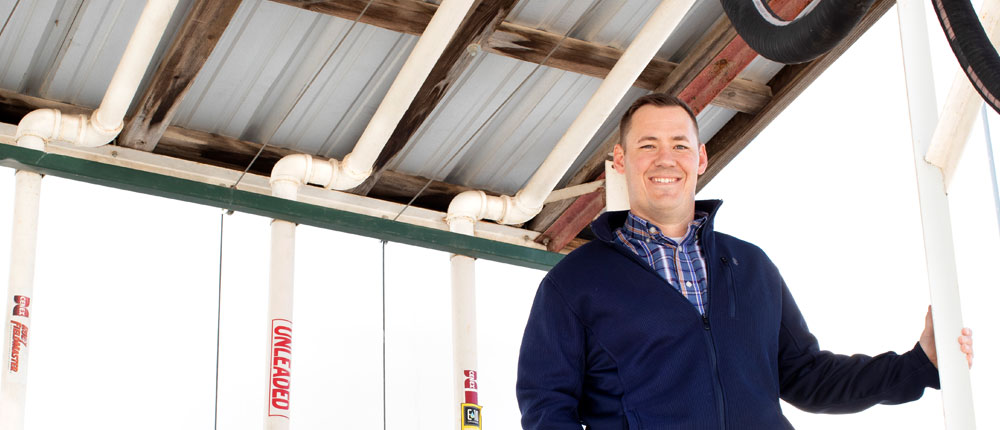In early February, a bitter cold blast of Arctic air — a polar vortex — sent temperatures in northern Minnesota plummeting to -43 degrees Fahrenheit. When the icy air swirled south, southern U.S. utilities steeled themselves for a big freeze.
Scott Barkley, director of energy operations for Mid-Kansas Cooperative (MKC) based at Moundridge, Kan., received the first call on Feb. 9 from the co-op’s customer, the Board of Public Utilities (BPU). BPU leaders were worried about staying in operation through the coming cold wave.
BPU, a locally owned utility, provides electricity and heat for McPherson, Kan., a city of nearly 15,000 people, and feeds the regional grid, including the CHS-owned McPherson refinery. BPU needed MKC to supply 300,000 gallons of diesel fuel that week to power the utility’s electrical generators.
Barkley created an initial plan, working with CHS Refined Fuels Account Manager Jared Docken. They worked to ensure the co-op could pull diesel directly from the CHS refinery. By Feb. 12, with continued historic cold temps in central Kansas, the demand for diesel fuel had grown to 1 million gallons.
Barkley began organizing a fleet of MKC and partner trucks to keep diesel flowing to BPU. As the cold intensified, so did demand, not only from BPU but from neighboring utilities like Evergy. More trucks and drivers were needed; drivers from Kansas and Oklahoma responded to the call.
“I don’t think anyone knew what the scope of the demand would be,” says Docken. “We just kept supplying diesel as it was needed.”
When the cold finally broke on Feb. 22, more than 5.5 million gallons of diesel had been transported to the utilities — nearly 800 truckloads and one-quarter of MKC’s annual fuel volume.
“This shows how the cooperative system works. Everyone pulled together to be sure there were no hiccups,” says Barkley. Thanks to that effort, there were no rolling blackouts in the region. “The team stepped up and performed when our community needed us most.”
Check out the full C magazine with this article and more.




